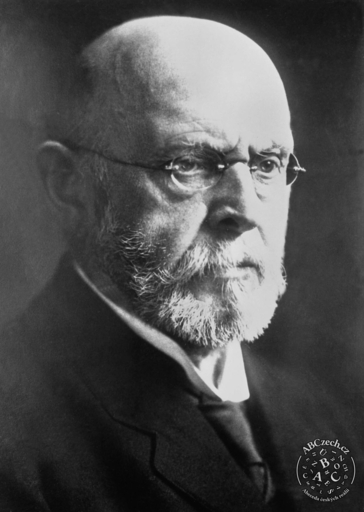
Prose writer and dramatist who described historical events in minute details and thus brought the described periods closer to the reader. His work is the pinnacle of Czech literature of the national revival, which was subsequently often cited as the desired way of relating to the past.
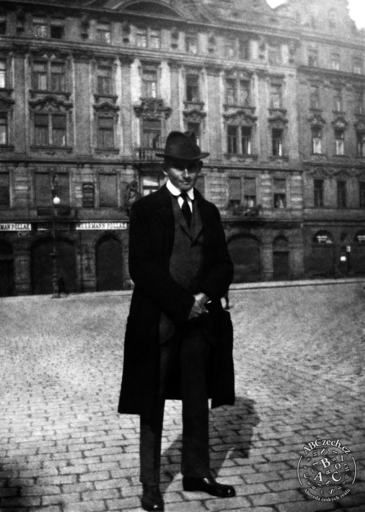
One of the most famous 20th-century German-speaking writers from Prague. He is regarded as the predecessor to existentialism and literature of the absurd.
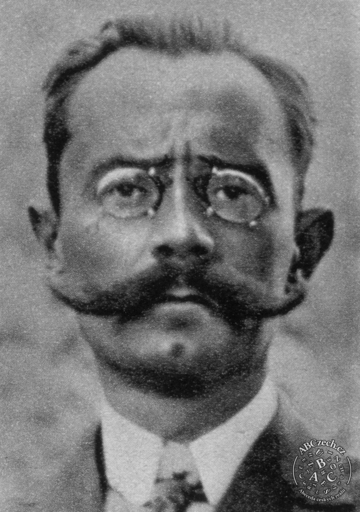
A prominent philosopher and writer, one of a few Czech “poète maudit”. He wrote several prose works and dramas that were radical for his time.
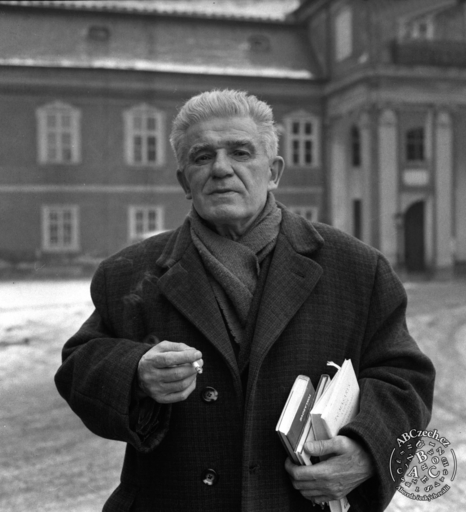
Prose writer and journalist, one of the members of the Devětsil association and an important representative of Poetism. He is sometimes called the poet of prose.
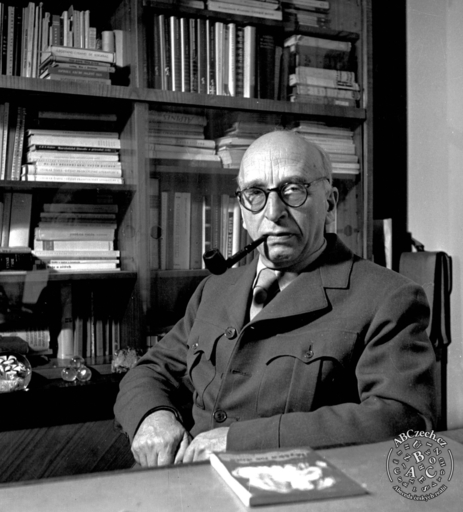
Dramatist and prose writer of the so-called Čapek generation. Unlike the other author of the Avant-Garde period, he adhered to realism in his plays and dealt with existentialist and moral questions of human life.
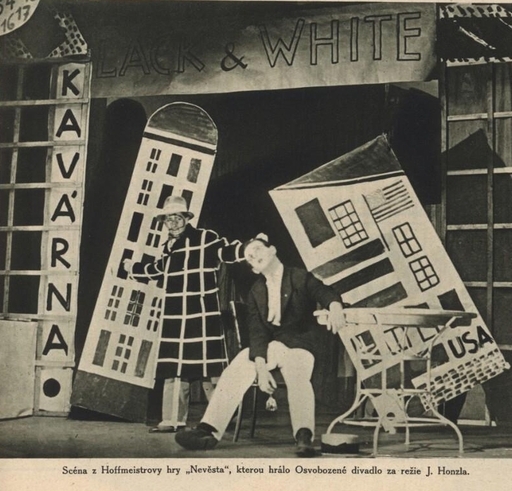
Centre of Czech theatre avant-garde of the 1920s and 1930s. It was founded by directors Jindřich Honzl and Jiří Frejka as a section of the group Devětsil in the winter of 1925. During the economic crisis, it was one of the most popular theatres in the country due to Voskovec and Werich.
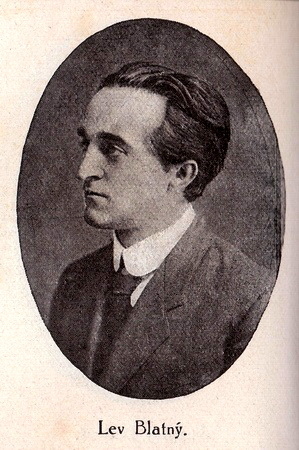
Organisation of young, mostly Moravian writers from the 1920s. Their works are influenced by Expressionism, which they took to be one of the elements of the “revolutionary wave in life and art, which is now moving around the world”.
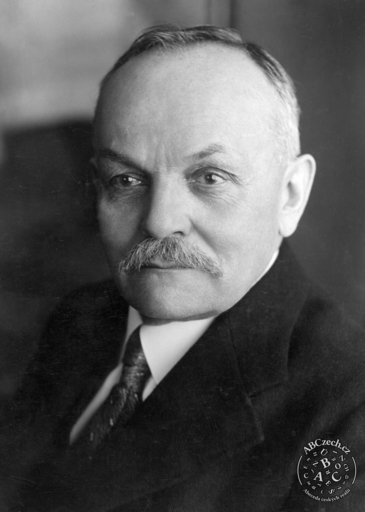
Poet, prose writer, journalist and politician known for initiating Czech modernism and writing its manifesto, together with F. X. Šalda. His style differs from the preceding Lumír and Ruch generations by placing more emphasis on contemporary social issues.
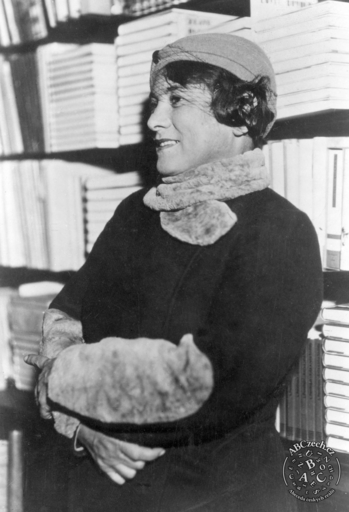
Prose writer, translator, theatre critic and one of the founders of Czech social novel, dealing with the relationship between individual and society. She was also a publicist, writing for the periodicals Právo lidu, Komunistka and Rudé právo.
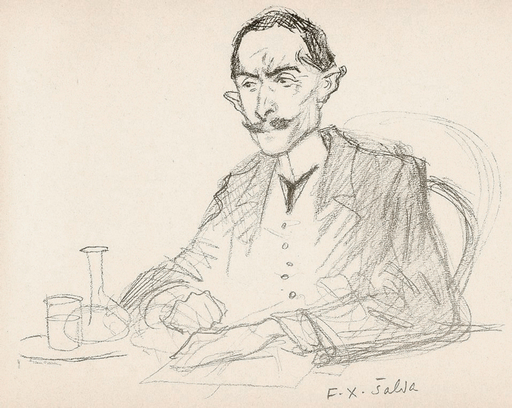
Declaration that formulated the ideas and demands of the new generation of artists at the turn of the 19th and 20th centuries.
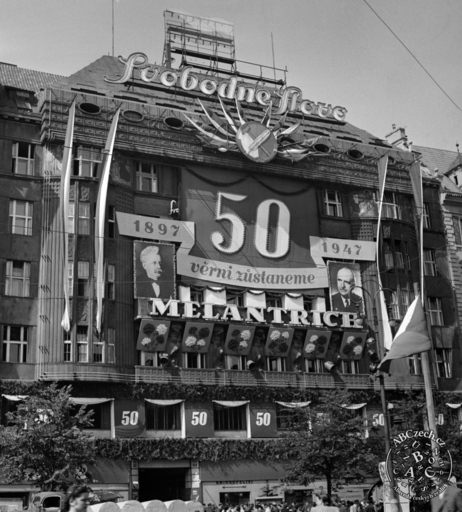
1898–1999
The Melantrich publishing company was originally called “Printing Press of National Socialist Workers” (Tiskárna národně-sociálního dělnictva), or “Book Printing Press of National Socialist Workers” (Knihtiskárna národně-sociálního dělnictva). It was founded on 9 July 1898, at the encouragement of Jaroslav Klofáč, president of the National Socialist Party. In March 1910, the company bought a house at Wenceslas Square no. 739, where it built a new building named The Star (Hvězda). At the same time, it also changed its name to “Melantrich, Book Printing Press and National Socialist Artistic Lithographic Institute” (Melantrich, knihtiskárna a umělecký litografický ústav národně-sociální). In 1917, the building was sold due to financial problems, but it was bought back in five years. In 1919, the company received the concession for selling books and opened a book shop in The Star.
The expansion of activities led to another change of the company’s name: “Melantrich, Public Limited Company for Graphic Industry and Publishing in Prague” (Melantrich, akciová společnost pro grafický průmysl a nakladatelství v Praze). The company kept growing and only the dailies and illustrated magazines remained on Wenceslas Square. Company branches opened in Ostrava in Moravia and in Brno, a later in Žilina in Slovakia as well. The company also invested into film, participating in Vladislav Vančura’s Faithless Marijka (Marijka nevěrnice, 1934) and introduced graphics design in Atelier Melantrich. It also introduced a music department and in the late 1930s bought the record company Esta. At the end of 1937, a mansard was opened in the building on Wenceslas Square for organising cultural events and the Ars exhibition hall on ground floor, which functioned until 1959. In 1938, Melantrich was one of the largest and most advanced printing companies in Europe. From February 1950, the company became an instrument of the Czechoslovak Socialist Party. In the 1950s, the phrase “Free Word” was added to the company’s name and in 1968 the company’s name reverted to its original form Melantrich. The publisher stopped its activities nine years after the Velvet Revolution.
At first, the company focused on periodicals and brochures. In 1920, it published the first Czechoslovak tabloid magazine Pražský ilustrovaný zpravodaj. Other popular magazines included Hvězda československých paní a dívek and Mladý hlasatel by Jaroslav Foglar.
The first book editions were published with magazines. The edition Románová knihovna Melantricha (1924–1928) was dedicated to translations. Women’s books were published in Ilustrovaná knihovna Hvězdy (1927– 1929). Melantrichova knižnice (1928–1934) was created under F. X. Šalda’s editorship and 81 volumes of translations and, to a lesser extent, original Czech literature were published in it. The Úroda edition (1928–1938, 101 volumes), edited by Bedřich Fučík, focused on contemporary world and Czech prose. Poetry was published in the Poezie edition (1933–1949, 63 volumes), at first edited by Bedřich Fučík and later by Antonín Matěj Píša. Other important editions brought translations from Russian, Polish, Slovak and other languages. Melantrich also published a lot of professional literature and reproductions of fine art.
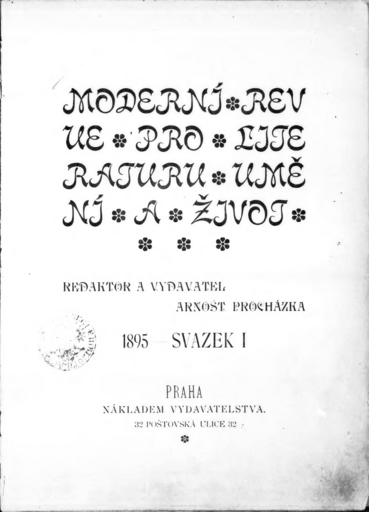
The first Czech magazine of decadents and symbolists. It was published between 1894 and 1925.
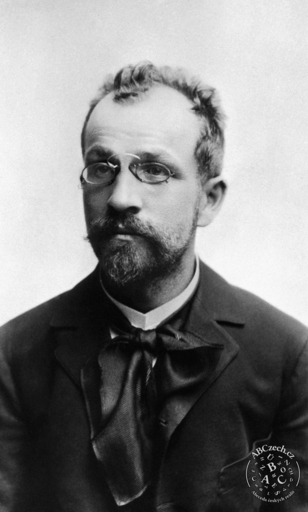
Writer, dramatist and literary critic. His work spans Realism, Impressionism, Art Nouveau and early Expressionism. He is also the author of Bestia triumphans (1897), a manifesto opposing the urban renewal scheme of the historic centre of Prague.
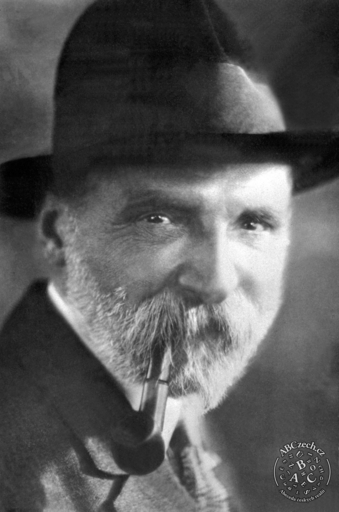
Poet, journalist and translator connected with several social movements: anarchism, socialism, communism and Stalinism. In literature, he was a prominent representative of decadence, then vitalism, civilism and later also proletarian literature.
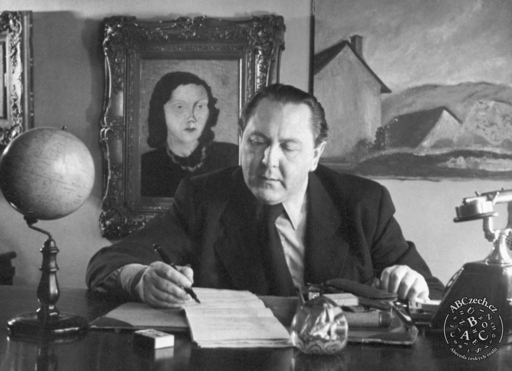
A versatile artist: poet, prose writer, dramatist, librettist, essayist, screenwriter and translator. One of the most distinguished Czech poets of the first half of the 20th century and the Avant-Garde movement.
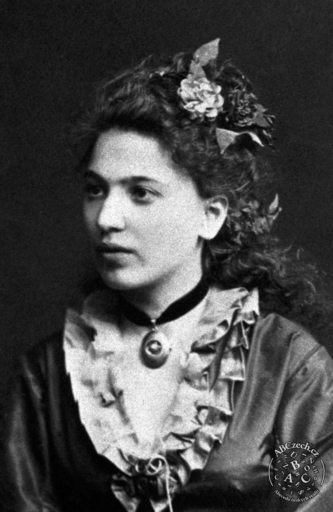
Prose author who wrote about life in eastern Bohemia. She is one of the prominent representatives of Czech realism and women’s emancipation movement.
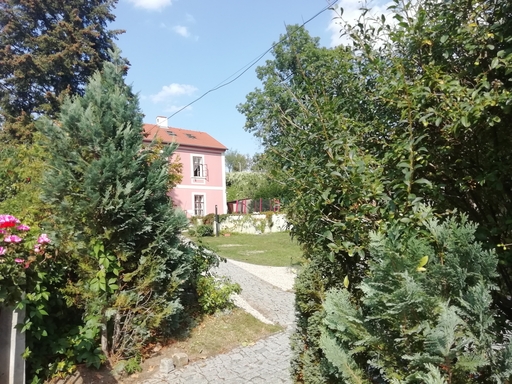
Family villa which became a centre of Czech anarchists and bohemians in the early 20th century, and in which a new artistic generation appeared, led by Stanislav Kostka Neumann.
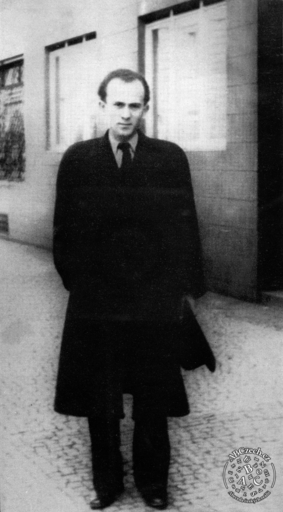
Poet whose work had an immense significance for Czech poetry. He was influenced by existentialism, but soon created his own specific poetics.
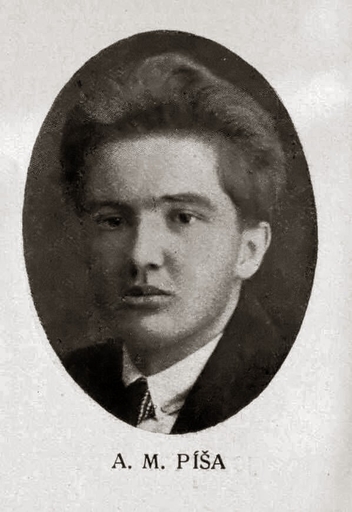
Literary and theatre critic, poet, historian and editor, a foremost programmatic spokesperson for the proletarian literature of the early 20th century.
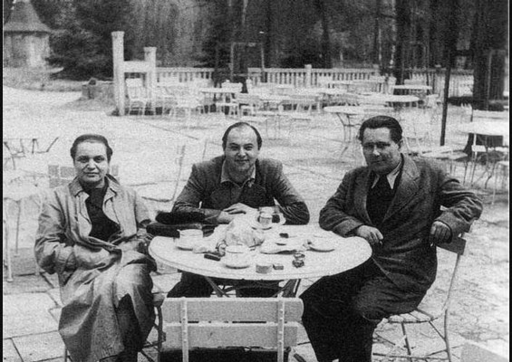
Specific Czech avant-garde movement founded by theoretician of modern art Karel Teige and poet Vítězslav Nezval, who sought to create a new way of understanding the world.
2016-2020 ABCzech.cz - © Filozofická fakulta Univerzity Karlovy
Content from this website may be used without permission only for personal and non-commercial purposes and with the source cited. Any other use is allowed only with the authors' consent.
This web application Sonic.cgi meets GDPR requirements. Current information can be found here.